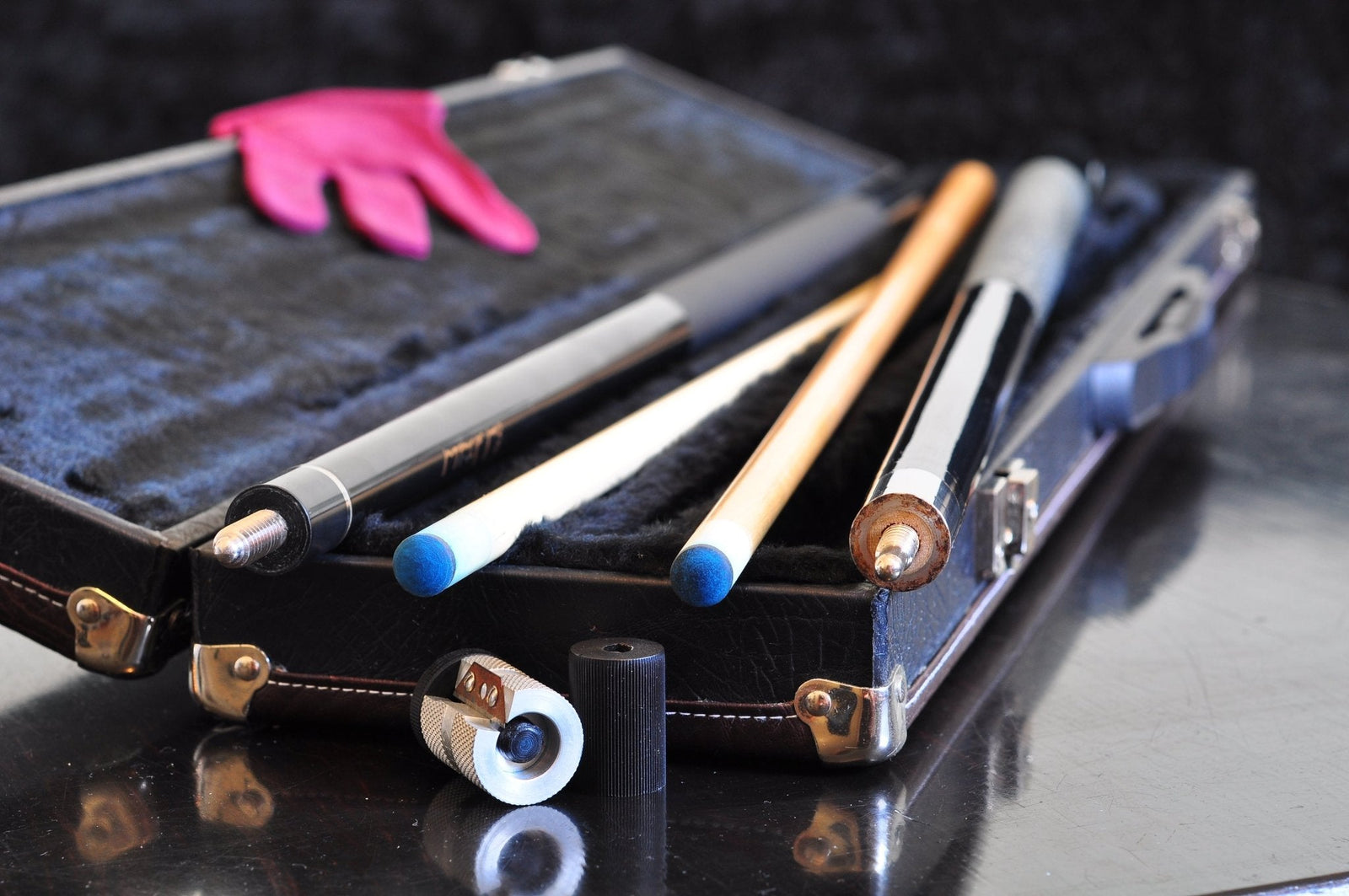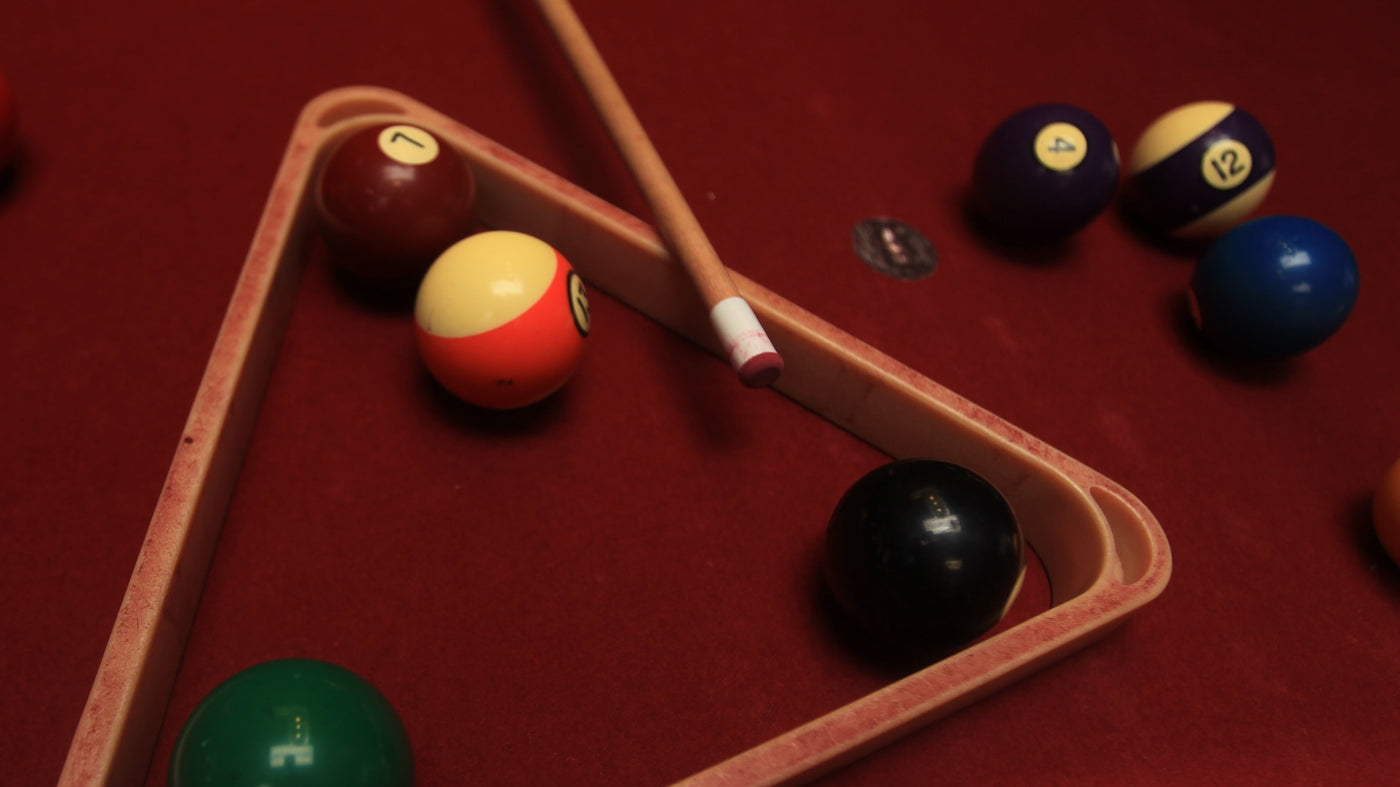Pool cue cases play a crucial role in protecting and transporting pool cues for players of all levels. They provide essential support for ensuring the cues remain safe and undamaged during travel and storage. In this article, we will explore the various types of pool cue cases, discuss their sizes, and materials, and offer valuable suggestions for selecting the most suitable case to meet your specific needs.
Outline
- Types of Cue Cases
- Cue Case Sizes
- Selecting the Right Case
- Popular Materials
- Taking Care of Your Case
- Conclusion
- FAQs
Importance of Cue Cases
When it comes to pool cues, they are not only tools but also valuable investments. Cue cases serve as protective shields, safeguarding the cues from accidental impacts, humidity, and temperature changes. By using a high-quality cue case, players can ensure that their cues maintain their performance and longevity, delivering optimal gameplay experiences.
Types of Cue Cases
Soft Cue Cases
Soft cue cases are a popular choice among casual players and beginners due to their lightweight and flexible nature. Typically made of materials like nylon or vinyl, these cases offer basic protection. They often feature additional pockets for storing accessories such as chalk, spare tips, and joint protectors, making them convenient for players who need easy access to their gear.
Hard Cue Cases
Serious players and professionals prefer hard cue cases for their superior protection capabilities. Constructed with a sturdy outer shell, these cases provide excellent durability. They are commonly made from materials like leather, aluminum, or reinforced plastic. The cushioned interiors of hard cue cases contain individual compartments for each cue, preventing collision and scratches during transport.
Hybrid Cue Cases
Hybrid cue cases combine the desirable features of soft and hard cases, offering a balance between protection and portability. These cases have a soft exterior while featuring a reinforced frame or a hard shell interior for added strength. Hybrid cue cases are ideal for players who seek more protection than what soft cases provide but find hard cases too bulky for regular use.
Cue Case Sizes
When selecting a cue case, it's essential to consider the size and capacity that will best accommodate your cues and accessories. Cue case sizes are typically referred to by the number of butts and shafts they can hold. Here are some common cue case sizes:
1x1 Cue Case
A 1x1 cue case is designed to hold a single cue butt and shaft. It's a compact and lightweight option, ideal for players who prefer to carry a single cue. This size is convenient for casual players or those who have a favorite cue they prefer to use.
2x2 Cue Case
A 2x2 cue case can hold two cue butts and two shafts. It's a popular choice among players who want to carry multiple cues and have a spare cue available for backup or different playing situations. The 2x2 size offers versatility while remaining relatively compact and easy to transport.
2x4 Cue Case
A 2x4 cue case provides storage for two cue butts and four shafts. It's a larger cue case designed for serious players or those who like to carry multiple cues and additional accessories. The 2x4 size is suitable for players who want to have a selection of cues available for different games or playing styles.
3x5 Cue Case
A 3x5 cue case is a larger, more spacious option capable of holding three cue butts and five shafts. This size is favored by professional players or those who have an extensive cue collection. The 3x5 cue case offers ample storage space for multiple cues, additional shafts, and various accessories.
Other Sizes
In addition to the standard sizes mentioned above, there are cue cases available in various other configurations to suit individual preferences and specific needs. These sizes may include 1x2, 2x3, 3x4, 4x8, and more, depending on the manufacturer and product offerings.
Selecting the Right Case
Choosing the appropriate cue case involves considering several factors to match individual preferences and requirements. Here are key aspects to keep in mind:
- Cue Protection:Assess the level of cue protection needed based on playing style, frequency of travel, and the value of the cues. Hard cases provide the highest level of protection.
- Portability:For players who frequently travel with their cues, lightweight and compact cases are recommended. These cases should be easy to carry and fit comfortably in overhead compartments or car trunks.
- Storage Space:Evaluate the storage needs, taking into account accessories such as chalk, cue extensions, or joint protectors. Some cue cases offer additional compartments or pockets to accommodate these items, while others focus on minimalist designs.
- Aesthetics:Personal preference is important when selecting a cue case. Consider factors such as style, color, and design to choose a case that aligns with individual tastes and reflects personal style.
Popular Materials
Leather
Leather cue cases are renowned for their elegance, durability, and timeless appeal. They offer excellent protection and often feature luxurious interiors. While leather cases tend to be pricier, the investment is worthwhile for serious players seeking top-quality cases.
Nylon
Nylon cue cases are lightweight, affordable, and resistant to moisture. They provide decent protection, making them suitable for casual players or those on a budget. Nylon cases come in various colors and designs, offering versatility in choice.
Vinyl
Vinyl cue cases offer affordable options with basic protection features. They are lightweight and easy to clean, making them practical choices for casual players. Vinyl cases are available in a wide range of styles and colors, allowing players to find one that suits their preferences.
Aluminum
Aluminum cue cases are renowned for their durability and strength. They provide excellent impact protection and are resistant to moisture and temperature changes. Professional players often prefer aluminum cases due to their maximum cue protection capabilities and reliability.
Taking Care of Your Case
To ensure the longevity and optimal performance of your cue case, it is important to follow proper maintenance practices. Here are some tips:
Regular Cleaning
Clean your cue case regularly using a soft cloth or a mild cleaning solution. Remove any dust, dirt, or stains from both the exterior and interior surfaces to keep it looking and functioning at its best.
Avoid Extreme Conditions
Protect your cue case from extreme temperatures, excessive humidity, and direct sunlight. These conditions can potentially damage the materials and affect the overall integrity of the case. Store your cue case in a cool, dry place when not in use.
Proper Cue Placement
Always place your cues in their designated compartments within the case. Make sure they are securely positioned to prevent any movement or collisions during transportation. This will help maintain the structural integrity of the case and prevent any potential damage to your cues.
Handle with Care
Treat your cue case with care and avoid dropping or mishandling it. Remember that the case not only protects your cues but also plays a crucial role in keeping them safe. By handling it with caution, you can minimize the risk of accidental damage and ensure long-term durability.
Conclusion
In summary, pool cue cases are essential accessories for protecting and transporting your valuable cues. With a wide range of options available, from soft cases to hard cases and hybrid designs, players can choose the type of case that best suits their needs. Factors such as cue protection, portability, storage space, and personal aesthetics should be considered when selecting a cue case. Additionally, materials like leather, nylon, vinyl, and aluminum offer different advantages in terms of durability, style, and price. By properly maintaining your cue case and following the suggested care tips, you can prolong its lifespan and keep your cues safe and secure for years to come.


